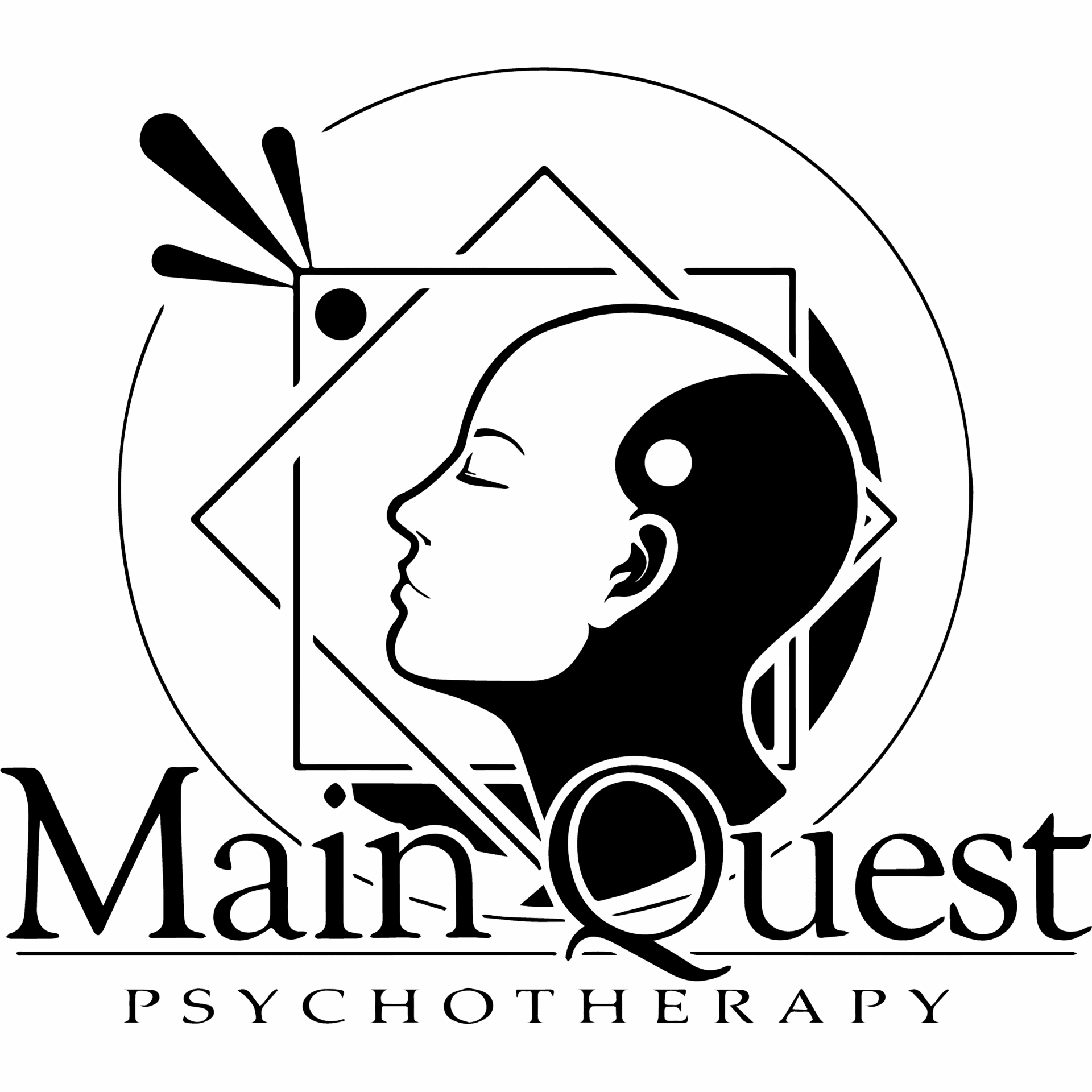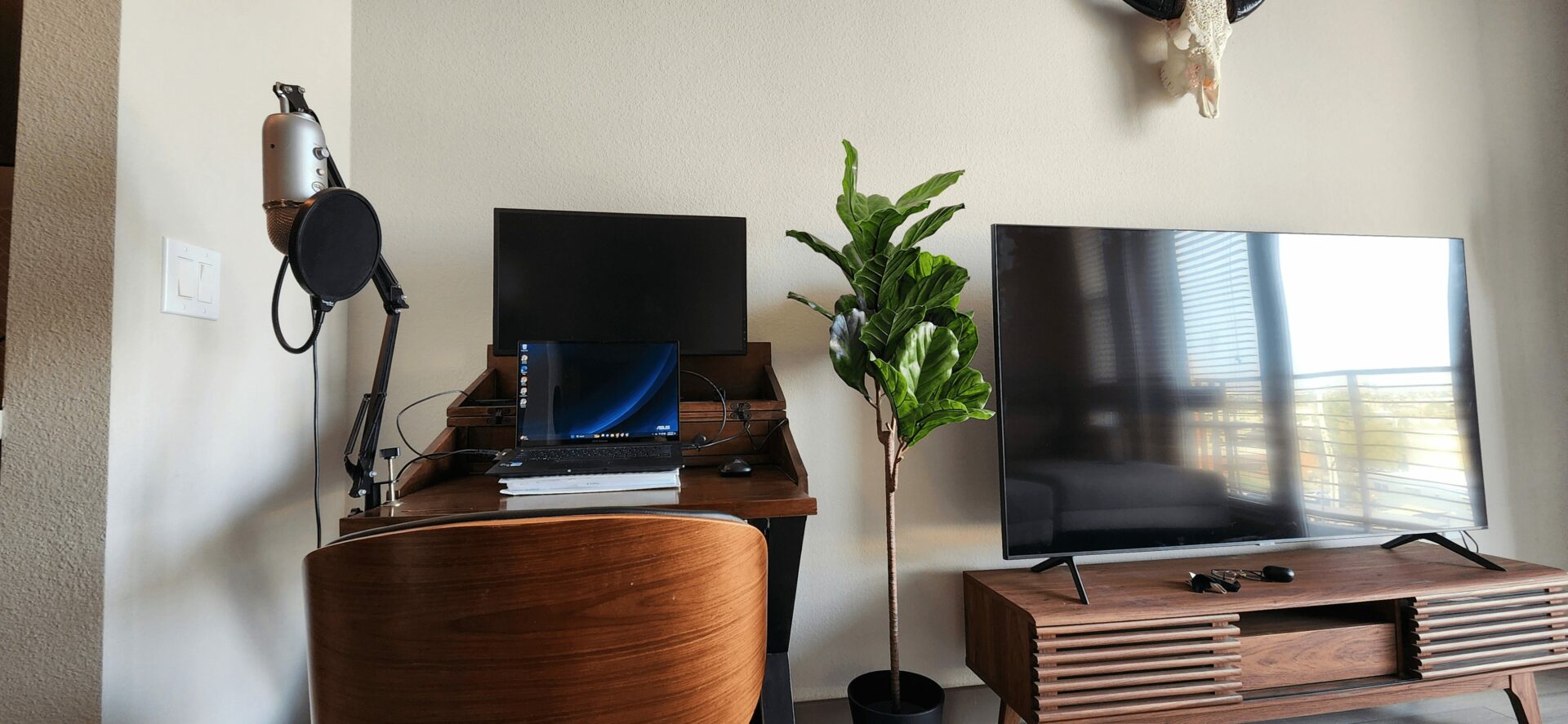Alright – so today we’ve got the honor of introducing you to Adam Holman. We think you’ll enjoy our conversation, we’ve shared it below.
Adam, so great to be with you and I think a lot of folks are going to benefit from hearing your story and lessons and wisdom. Imposter Syndrome is something that we know how words to describe, but it’s something that has held people back forever and so we’re really interested to hear about your story and how you overcame imposter syndrome.
When I first heard someone describe Imposter Syndrome, I was simultaneously floored and validated. It felt like someone was in my head, describing exactly what it was like to be me. For as long as I’ve had memory, it had felt like everyone else had the instruction manual for how to be a functioning and successful person, and I was just trying my best to emulate them. It was isolating, it caused me to feel constantly anxious in any social situation, and it amplified to a deafening degree if I had to perform. That all came to a head when I started University, eventually leading me to fail or drop out of six cumulative semesters while attempting to avoid the worry of being seen as the imposter I felt myself to be. All the while, I was hiding my failure from my family and friends, and you could imagine what that did to my sense of being an imposter.
I was eventually kicked out of University and realizing that I was going to be found out as the imposter that I am, I adopted a new strategy to protect myself from my worry: Push so unbelievably hard that no one on the outside could possibly deny that I’m the successful, functioning person I think that I should be. I got accepted to a different University and ended up returning with a 4.0 for the first time in my life. Even more, my new University didn’t accept my old GPA, so I ended up graduating with a Master’s Degree in Social Work and a 4.0 GPA. There was only one problem: Despite the success, I somehow felt like even more of an imposter. I was functioning much better, but my worry had dramatically increased. I was exhausted, and I wondered if I could even continue to practice therapy.
I mean that literally; I got curious and started to wonder about it. I thought, “What would it be like to practice if I wasn’t constantly feeling like an imposter? What is the reason I feel like an imposter? What is the reason this got worse despite a bunch of evidence that I’m doing better?” If you become curious about your suffering, it can become a gateway to peace, and in those questions, I found answers.
There’s an old proverb; “Physician Heal Thyself”. That is to say, if you are going to do the work of healing others, the most important person to start with is you. Effectively, I realized that I needed to therapize myself, and seek the support of the wonderful therapists and mentors around me. Between answering the questions above and seeking support, it wasn’t long before I came to find the surprising antidote to the Imposter Syndrome I had experienced my whole life:
The recognition that I had been, in fact, acting as an imposter…and that’s okay.
The root of Imposter Syndrome is feeling as though your entire worth and value is based on meeting some kind of standard or expectation. Being successful enough, perfect enough, accepted enough, smart enough, etc. It’s not a bug; it’s a feature. If you’re not meeting those standards, it suddenly feels like you’re unworthy, and Imposter Syndrome is trying to protect you by keeping you hypervigilant of any signs that you might not be meeting those standards. You will then either avoid situations for which you might be revealed as an imposter, or push yourself super hard to appear flawless.
I had spent my whole life trying to appear as someone who is confident, who has no doubt, who never makes mistakes, who always knows what they’re doing, who has it all figured out, who never fails, who always knows the right thing to say, and most importantly, does NOT feel like an imposter. In that precise way, I had been acting as an imposter, hiding the reality that often times, I was terrified. The more I tried to fix that feeling externally, I felt a ton of pressure which motivated me, but further fed the draining internal feeling of being an imposter.
One of the annoying, yet incredibly helpful parts of practicing therapy is that you can always ask yourself the question: “What would I want a client of mine to do if they were stuck in my situation?” Once I saw what was going on and asked that question, I immediately knew exactly what I needed to do. I needed to reveal myself. I started to express my worry, I started to share my mistakes, and I started to express my doubts. To my surprise, almost every single one of my colleagues felt the same. Not only that, the more that I revealed my stumbling, mediocre parts to the world, the more people felt connected to me, and the closer I felt to the people in my life.
As I reflected, I came to the realization that if you’re going to grow or do anything new, it’s going to require you to show up and operate as if you’re competent before you have the experience to do so. For instance, if you start a new job, you can’t possibly have the skills or experience necessary to know what you’re doing until you’ve actually gone forth and done it. I call this the Paradox of Competence: Your ability to become competent at anything is dependent on your ability to tolerate feeling incompetent. Having no clue what you’re doing is the cost of entry for becoming skilled at what you do. If we’re trying not to be an imposter, we deny ourselves that opportunity.
As it turns out, the real problem was not that I felt like an imposter; the real problem was that I thought I wasn’t supposed to. Feeling like an imposter means that you’ve ventured past your comfort zone into the territory of, “I don’t know…yet”. It means that you’re pushing past the point of discomfort into the area of growth. Finally, it means that you’re human, and that like most of us, it’s terrifying to reveal the truth of your stumbling, mediocre, imperfect parts. The more that you try to avoid those realities, the more of an imposter you become. When you fully embrace that you feel like an imposter, the more you give yourself what you need to genuinely become the person you aspire to be.

Thanks, so before we move on maybe you can share a bit more about yourself?
It feels as though I was put on this earth to help people understand their minds and live as the person they would like to be instead of being trapped in a cycle of reacting as the person that they have been. I have always loved listening to people, and had always found understanding others to be very natural. The person I had the most difficulty understanding was myself, which much like the Imposter Syndrome, caused me to be stuck in a loop of a lot of worry, self-criticism, and doubt for the first 25-years of my life. I had tried therapy on a couple of occasions and didn’t find success with it, and eventually resorted to coping by playing video games for 16-hours per day. As you might imagine, that impacted my academic performance, and after being kicked out of University, ended up finding great relief in just 5-months time through introspection. That relief was so cathartic, and I felt a strong desire to guide others to feel the same. I thought, “If I can give this to myself, I’m certain I can give it to others.” I went on to practice therapy, all the while continuing to develop understanding for myself and others.
After moving to Arizona, I started my own practice, Main Quest Psychotherapy. Main Quest is a nod to my time spent gaming, as well as a description of what is on offer: A personalized journey to find the life you would like to be living, and the fulfillment that comes from a life spent walking that path. At this point, I have ~8-years of therapy practice, and my love for walking along people down their path has only grown. It’s nothing short of a privilege and a gift to be able to hear people genuinely, to watch people start living the life they want to be living, and to see people graduate from therapy knowing that they will continue to walk that path. That is such a part of my personal main quest, and to watch people experience the same relief I felt is deeply fulfilling.
Most recently, I began to realize that so many people are dealing with the same struggles, and that multiple times a day, I’m having the same conversations. Once again I started reflecting (one of my favorite past-times), and I thought, “Why am I repeating the same conversations individually when this is clearly needed on a larger scale?” Wanting more people to have access, I took to social media where I make content aimed at spreading the beliefs, tools, and understandings that help people live well.
Most of my time is spent walking my Main Quest, because truthfully, it’s what brings me joy. I invite you to come by and visit if you would like to find yours!

Looking back, what do you think were the three qualities, skills, or areas of knowledge that were most impactful in your journey? What advice do you have for folks who are early in their journey in terms of how they can best develop or improve on these?
Self-reflection, adaptability, and empathy have got to be some of the most powerful multi-tools when it comes to overcoming the many challenges of life. Self-reflection helps you to clearly see and understand the way that you’re interacting with the world in ways that are both helpful and unhelpful. Using that information, you can keep more of what is helpful and let go of what’s unhelpful. The world is an ever changing place, and adaptability allows you to realize the opportunity that comes with change instead of being stuck in paralyzed by the fear of it. Along with self-reflection, it also keeps you accountable to adjust and make changes that help you grow. Finally, empathy provides the understanding necessary to connect, form stronger relationships, communicate more effectively, and give yourself the compassion and support needed to deal with the ebbs and flows that are natural in any growth process. Ultimately, these three skills will make you incredibly resilient.
There’s an incredible form of therapy that helps develop all of these skills, and learning this form of therapy is one of the biggest unexpected gifts of my career. It’s called Acceptance and Commitment Therapy (ACT). The basic idea is this: “Whatever you think and feel is okay. Let’s help you respond in a way that you feel good about.” The other neat thing is that it’s highly accessible to the general public. A quick google search will bring you a bunch of free resources, and there is a great book for the lay person called ‘The Happiness Trap’ by Russ Harris. Whether you seek out a therapist or choose to go the route of self development, ACT is a great way to start that Journey.

How can folks who want to work with you connect?
I am! So much of my journey has involved me taking the path of independence. If I had one piece of advice for my younger self it would be, “Hey man, please don’t give up on finding support. You are going to figure it out on your own, it’s just going to take longer and be much harder.” I’m a firm believer that the advice you needed in the past is an instruction for how to live now, and I’m listening to that instruction.
My therapy practice is pretty solid, and at this moment, I’m looking to collaborate with folks who can provide some support on my quest to spread healthier beliefs, tools, and understanding to the general public. I’ve had some success, however I know what I’m putting out can be better. If you have a passion for mental health, if you have experience in making content and managing social media, if you film, if you animate, or if you develop applications, I would love to hear from you. Feel free to connect with me either via the email on my website, or through direct message on Instagram.
Contact Info:
- Website: https://www.mainquestpsychotherapy.com/
- Instagram: https://www.instagram.com/adamholmanlcsw/

so if you or someone you know deserves recognition please let us know here.




